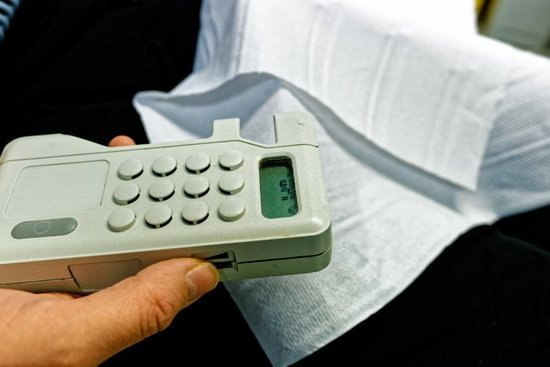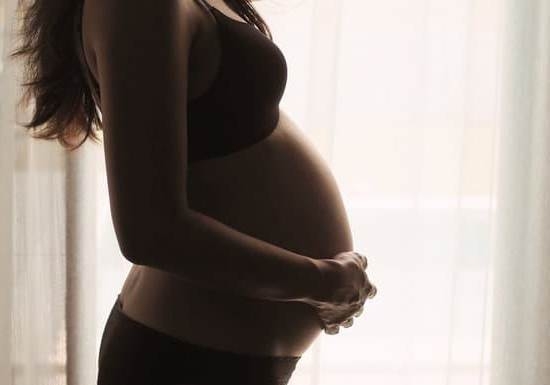Are cramps normal in early pregnancy? Many women experience cramps during the early stages of pregnancy, which can often cause concern. Understanding the reasons behind these cramps is essential to ease worries and ensure a healthy pregnancy.
Cramps in early pregnancy can be caused by a variety of factors, such as the uterus expanding to accommodate the growing fetus, hormonal changes, or even gas and bloating. It is important for expecting mothers to differentiate between normal cramping that is a natural part of pregnancy and cramps that may indicate a more serious issue.
One common cause of cramps in early pregnancy is implantation bleeding, which occurs when the fertilized egg attaches itself to the lining of the uterus. This process can trigger mild cramping and spotting, often mistaken for the start of a menstrual period. Being aware of this phenomenon can help alleviate anxiety for pregnant women experiencing these symptoms.
Understanding the Causes of Cramps in Early Pregnancy
During the early stages of pregnancy, many women may experience cramps as their body undergoes significant changes to accommodate the growing fetus. Understanding the causes of these cramps can help alleviate concerns and provide reassurance to expectant mothers. Here are some common reasons why cramps are normal in early pregnancy:
1. Implantation: One of the primary reasons for cramps in early pregnancy is implantation. When the fertilized egg attaches itself to the uterine lining, it can cause mild cramping and spotting, known as implantation bleeding. This process typically occurs around 6-12 days after conception and is often mistaken for a light period.
2. Uterus Expansion: As the uterus expands to make room for the developing baby, it puts pressure on surrounding organs and ligaments, leading to occasional cramping sensations. These cramps may feel similar to menstrual cramps but are a natural part of the pregnancy process.
3. Hormonal Changes: Pregnancy hormones like progesterone can also contribute to uterine contractions and mild abdominal discomfort. These hormonal fluctuations can trigger cramps throughout the first trimester.
It is important for pregnant women to remember that experiencing some degree of cramping in early pregnancy is considered normal and does not necessarily indicate a problem with the pregnancy. However, if the cramping becomes severe or is accompanied by heavy bleeding, fever, or dizziness, it is crucial to seek medical attention promptly as these could be signs of a more serious issue.
Differentiating Between Normal Cramps and Concerning Cramps in Early Pregnancy
During the early stages of pregnancy, many women experience cramping, which can be concerning for some but is often a normal part of the pregnancy process. It’s important to understand the difference between normal cramps and those that may indicate a potential issue.
Normal Cramps
Normal cramps in early pregnancy are typically mild and feel similar to period cramps. These cramps are often caused by the uterus expanding as the fertilized egg implants itself into the uterine lining. Additionally, hormonal changes can contribute to these mild cramps. It’s important to remember that experiencing some level of discomfort during this time is common and does not necessarily indicate any problems with the pregnancy.
Concerning Cramps
While mild cramps are usually normal, there are certain types of cramping that may signal an issue in early pregnancy. Severe or persistent abdominal pain, especially if accompanied by vaginal bleeding or nausea, should not be ignored. This could be a sign of an ectopic pregnancy, miscarriage, or other complications. If you experience intense pain or have any concerns about your symptoms, it’s essential to contact your healthcare provider immediately for further evaluation.
Overall, although cramps
The Role of Implantation Bleeding in Causing Cramps
Cramping during early pregnancy is a common concern for many expectant mothers. Understanding the role of implantation bleeding in causing these cramps can provide insight into this normal occurrence. Implantation bleeding usually occurs around the time of your expected period and is often mistaken for a light period. This can be accompanied by some cramping, which is considered normal in most cases.
Implantation occurs when the fertilized egg attaches itself to the lining of the uterus, leading to some minor bleeding. The cramping associated with implantation is typically mild and may feel similar to menstrual cramps. This process is essential for the embryo to establish a connection with the mother’s blood supply, allowing for proper growth and development throughout pregnancy.
It is important to differentiate between normal cramps caused by implantation bleeding and more concerning symptoms. While mild cramps that come and go are typically harmless, severe or persistent cramping, along with heavy bleeding, could indicate a more serious issue. If you experience intense pain or unusual symptoms along with cramps in early pregnancy, it is essential to contact your healthcare provider promptly for further evaluation.
| Implantation Bleeding Cramps | Normal vs Concerning Symptoms |
|---|---|
| Mild and intermittent | Normal: Mild cramping with light bleeding |
| Similar to menstrual cramps | Concerning: Severe or persistent cramping with heavy bleeding |
Tips for Managing Cramps in Early Pregnancy
Cramps during early pregnancy can be a common occurrence for many women. These cramps are often caused by the changes happening in the body as it adjusts to the pregnancy. One of the main reasons for cramping in early pregnancy is due to the expanding uterus, which puts pressure on surrounding organs and muscles. Additionally, hormonal changes can also contribute to cramping during this time.
It’s essential for pregnant women experiencing cramps to stay hydrated and maintain a healthy diet. Dehydration can exacerbate cramping, so drinking plenty of water throughout the day is crucial. Eating a balanced diet rich in vitamins and minerals can also help alleviate cramps and provide necessary nutrients for both mom and baby. Incorporating foods high in calcium, magnesium, and potassium can aid in muscle function and reduce the likelihood of cramps.
Incorporating some gentle exercises and stretches into your daily routine can also help manage cramps during early pregnancy. Activities like prenatal yoga or walking can improve circulation, reduce tension in muscles, and alleviate discomfort associated with cramping. However, it’s important to consult with your healthcare provider before starting any new exercise regimen during pregnancy to ensure it is safe for you and your baby.
| Tips for Managing Cramps | Explanation |
|---|---|
| Stay Hydrated | Drinking plenty of water throughout the day can reduce dehydration-related cramping. |
| Eat a Balanced Diet | Including foods rich in calcium, magnesium, and potassium can help alleviate cramps. |
| Engage in Gentle Exercises | Pregnancy-safe activities like prenatal yoga or walking can improve muscle function and reduce discomfort. |
When to Seek Medical Attention for Cramps in Early Pregnancy
Signs to Watch Out For
When experiencing cramps during early pregnancy, it’s important to be aware of certain signs that may indicate a need for medical attention. If the cramps are severe and accompanied by heavy bleeding, dizziness, fainting, or sharp pain in the abdomen, it could signify a more serious issue. Additionally, if the cramps are persistent and do not seem to improve with rest or hydration, it may be best to consult a healthcare provider.
Consulting Your Healthcare Provider
If you are unsure about the severity of your cramps or if they are causing you significant discomfort or worry, it is always recommended to reach out to your healthcare provider. They can provide guidance on whether your symptoms are normal or if further evaluation is needed. Remember that every pregnancy is different, so what may be considered normal for one person may not be for another.
Importance of Regular Prenatal Care
Regular prenatal visits with your healthcare provider are crucial during pregnancy, especially when dealing with symptoms such as cramps. These appointments allow for monitoring of both your health and the baby’s well-being. It also provides an opportunity to discuss any concerns or unusual symptoms you <are cramps normal in early pregnancy> experiencing. Don’t hesitate to address any questions or uncertainties you have about your pregnancy journey.
Real-Life Experiences of Women With Cramps in Early Pregnancy
During early pregnancy, many women experience cramps as their body undergoes changes to accommodate the developing fetus. While cramps can be a natural part of pregnancy, they can also cause concern and anxiety for expectant mothers. Understanding how other women have experienced cramps can provide reassurance and support during this time.
Here are some real-life experiences shared by women who have gone through cramps in early pregnancy:
- “I remember feeling scared when I started experiencing cramps in my first trimester. I didn’t know if it was normal or something to worry about. After talking to my doctor, I learned that mild cramping is actually quite common as the uterus expands to make room for the baby.”
- “For me, the cramps felt like menstrual cramps but milder. They would come and go, especially during the first few weeks of pregnancy. It was comforting to hear from other moms online that they had similar experiences and that it was usually nothing to be alarmed about.”
- “I found that staying hydrated and getting plenty of rest helped alleviate some of the discomfort caused by the cramping. It’s important to listen to your body and take it easy when you need to, especially during those early weeks.”
These personal accounts highlight that while cramps are a common symptom of early pregnancy, every woman’s experience may vary. It’s crucial for expectant mothers to stay informed, communicate with their healthcare provider, and seek support from other women who are going through similar experiences. Remember, you are not alone in dealing with these symptoms.
Conclusion
In conclusion, it is important for pregnant women to understand that experiencing cramps in early pregnancy is a common occurrence. These cramps can be attributed to various factors such as implantation bleeding, hormonal changes, and the stretching of the uterus as the body prepares for the growth of the baby. While cramps are typically considered normal in early pregnancy, it is crucial for women to be able to differentiate between normal cramps and those that may be cause for concern.
It is essential for pregnant women to listen to their bodies and seek medical attention if they experience severe or persistent cramps, accompanied by heavy bleeding or other concerning symptoms. However, many women find relief from mild cramps by staying hydrated, practicing gentle exercise such as prenatal yoga, and using heat therapy. It is also important for expectant mothers to get plenty of rest and take care of their overall well-being during this crucial time.
In sharing real-life experiences from other women who have gone through similar situations, it can provide comfort and reassurance to those who may be feeling anxious about cramps in early pregnancy. Remember that every woman’s pregnancy journey is unique, but knowing that cramps are a common part of early pregnancy can help alleviate some worries and allow mothers-to-be to focus on embracing this special time in their lives with a sense of calm and confidence.
Frequently Asked Questions
Is It Normal to Have Cramps at 5 Weeks Pregnant?
Experiencing cramps at 5 weeks pregnant is quite common and is often due to the changes happening in the uterus as it prepares for the baby. However, if the pain is severe or accompanied by other symptoms, it’s crucial to consult a healthcare provider.
Is It Normal to Have Stomach Cramps at 4 Weeks Pregnant?
Feeling stomach cramps at 4 weeks pregnant can also be normal as your body adjusts to pregnancy. These cramps are usually mild and due to the implantation process or hormonal changes happening in the body. If the pain becomes intense or persistent, seeking medical advice is recommended.
Is It Normal to Have Cramps at 6 Weeks Pregnant?
Cramping at 6 weeks pregnant is typically considered normal unless it is severe or associated with heavy bleeding. These cramps can be caused by the stretching of ligaments in the uterus or hormonal shifts. It’s essential to stay hydrated and get plenty of rest while monitoring any unusual symptoms closely.

Welcome to my fertility blog. This is a space where I will be sharing my experiences as I navigate through the world of fertility treatments, as well as provide information and resources about fertility and pregnancy.





